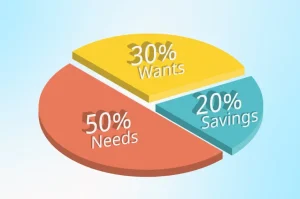The ability to manage your finances is one of the most important skills you’ll need in your daily life. If you’re trying to pay off debt, saving up for something huge, or simply seeking to be more financially responsible, decisions A budget is an essential tool. Even with the best intentions, a few mistakes in budgeting can be detrimental to any financial goal. Knowing these common mistakes will be your first move to changing your financial habits.
Failing to Track Expenses
A budget can only be effective if you are aware of the exact location of your money. A common mistake that individuals make is not being able to monitor their expenditures. If it’s a coffee-for-$5habit or subscriptions that drain your bank account, these seemingly minor expenses can quickly add up. Not knowing the whole story can lead to spending money on unnecessary things.
The solution? Begin to record every penny you spend. Software such as Mint, YNAB (You Need A Budget), or an intuitive spreadsheet can assist you in tracking your expenditure. This will enable you to identify patterns, recognize areas where there is a problem, and make better decisions about spending. Over time, tracking your expenses will reveal hidden spending habits, which means you can direct your money more efficiently toward your goals.
Not Setting Realistic Goals
Another costly mistake to avoid is being excessively optimistic or vague about what you want to achieve with your money. Although it’s thrilling to imagine having $10,000 saved in the next year or paying off all credit card debt in just a couple of months, goals that are unrealistic can lead to despair when they become impossible to attain. If you don’t have clear goals that are coupled with a realistic plan, your budget will seem as if it’s a burden rather than a useful instrument.
Instead, establish SMART goals (specific goals that are measurable, achievable, relevant, time-bound, and specific) that are compatible with your financial situation. For example, saving $300 per month to take vacation time on December 31 is a definite and measurable goal. Achieving manageable goals is significantly better at keeping you focused and will help you stay on your budget for the long term.
Ignoring Irregular Expenses
Inattention to seasonal or irregular costs can totally ruin your budget. These purchases are not made every month, but they require financial planning, such as holiday gifts, vehicle maintenance, annual memberships, and tax-related payments. If you don’t plan for these costs, these expenses usually surprise you, which forces you to draw from savings or accumulate debt.
To prevent this from happening, to avoid this, get the bank statements from the past and find the predictable irregularities in your expenses. Add them to your budget in distinct categories, and then start putting aside a few dollars every month to pay for them. By creating this cushion, it will allow you to take on these costs without putting your budget into chaos.
Neglecting to Review Your Budget
Your financial situation doesn’t remain static, nor will your financial plan. Changes in life—whether it’s a new employment opportunity, unexpected health costs, or shifting priorities—can have an impact on your budget or savings plans. If you don’t check your budget often, you may be using old numbers that don’t fit your life or needs.
It is a beneficial idea to examine your financial plan at least per month. Note any recent expenses, income adjustments, or areas where you’ve overspent or underspent. Make adjustments to your categories as needed to ensure that your budget is able to meet your needs efficiently. Regular reviews can help you track your financial progress and motivate you to stick to your budget.
Not Having an Emergency Fund
Living without an emergency savings account is akin to managing financial responsibilities without an insurance policy. The unexpected costs, such as emergency medical expenses, car repairs, or an unexpected job loss, could quickly sabotage your budget in the event that you aren’t prepared. Using credit cards exclusively in these circumstances can result in a soaring debt load as well as financial strain.
The creation of an emergency fund is one of your most important financial goals. Try to save 3 to 6 months of expenses for living. Start small if you’d like to; even putting aside a small amount like $20 or $50 per paycheck can be a lot in time. An emergency fund can give peace of mind and an extra financial cushion, ensuring that unforeseen events do not completely alter your budget.
Take Control of Your Budget Today
It can be difficult to budget. However, avoiding these typical mistaken assumptions can assist you in taking better control over your financial affairs. Through tracking your expenses, establishing achievable goals, planning for unexpected costs, rereading your budget on a regular basis, and creating your emergency savings account, you will be able to make a sound financial plan that is effective. Small but consistent efforts make for significant financial gains over time.
If you are considering changing the way you manage your finances, it would be beneficial to start reviewing your budget now. Please keep in mind, it’s never too late to make a change and lay the base for a more prosperous financial future.
FAQs
1. When should I look over my budget?
It’s recommended that you review your financial plan at least once per month. Regularly scheduled check-ins let you adjust your budget to reflect any new income or expenses and make sure it is in line with your financial goals for the moment.
2. What tools can I utilize to monitor my expenses?
There are various budgeting tools that are available, such as mobile apps like Mint, YNAB, and PocketGuard. Alternately, you can utilize spreadsheets or even a notebook that you can use to track your expenditure.
3. How much should I put aside for an emergency savings account?
Try to save between three and six months’ worth of expenses for your living. If this seems overwhelming, begin by setting aside whatever you can and then gradually increasing your savings over time.
4. What are irregular expenses, and how can I deal with these?
These are expenses that aren’t recurring monthly, for example, holiday gifts and car maintenance or annual subscriptions. To keep them in check, list out the expected costs for the year, then divide all of them and make a few savings every month.




